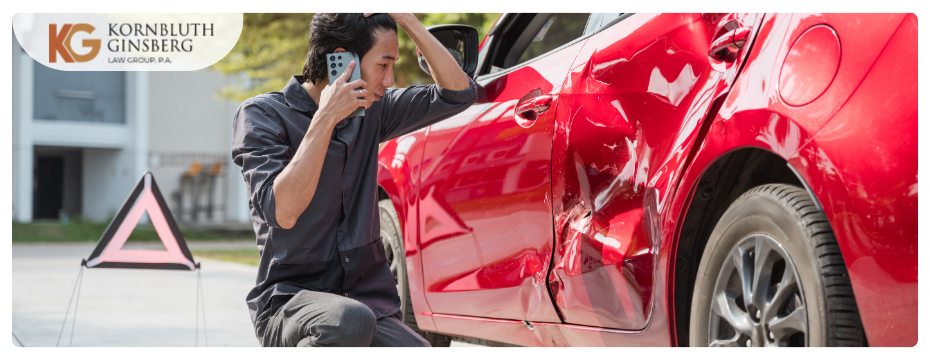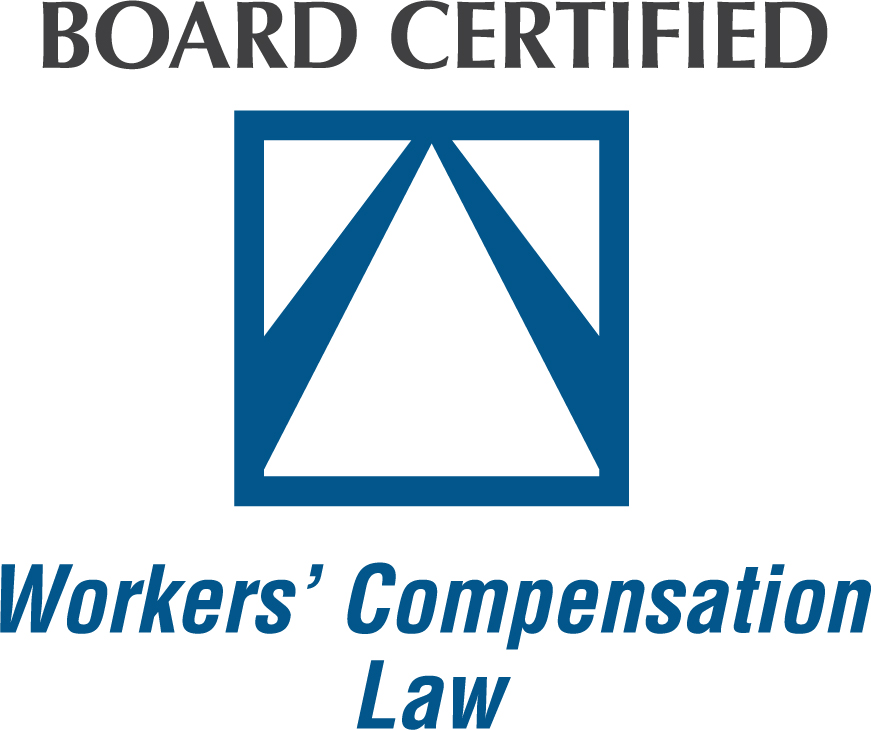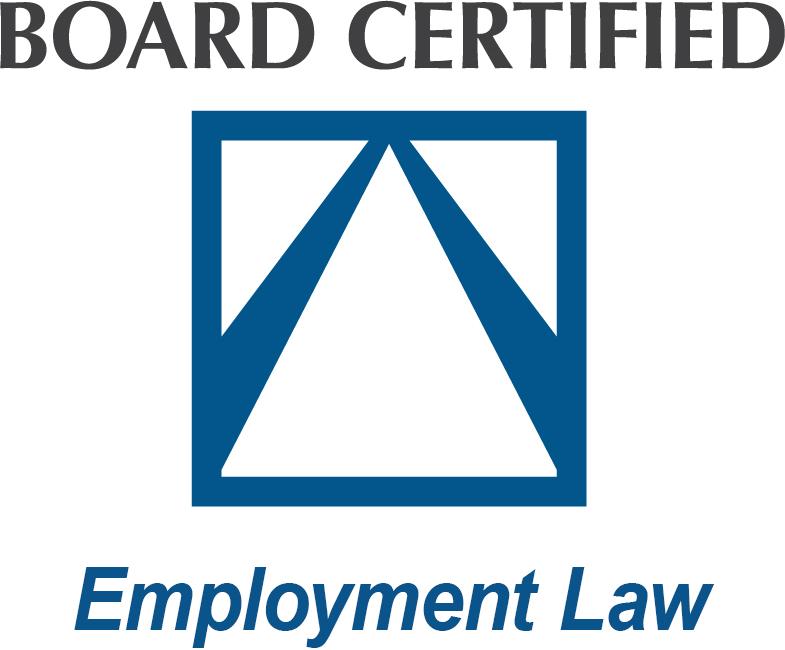Car Accidents While Driving for Work in NC

Key Takeaways:
- Workers’ comp may cover job-related car crashes — like when driving between worksites or running errands for your employer.
- Normal commutes usually aren’t covered under the coming and going rule, unless travel is part of your job or your employer provides transportation.
- You may recover from multiple sources — workers’ comp, another driver’s insurance, a third party, or your own policy.
- Disputes are common — insurers often argue your accident wasn’t work-related or undervalue your claim.
- An experienced NC work injury lawyer can help you fight for maximum compensation and handle both workers’ comp and third-party claims.
What Happens if You Get into a Car Accident on the Way to Work?
A work-related vehicle accident can have catastrophic consequences. Workers’ compensation is supposed to cover injuries from work-related accidents, but you may face resistance from your employer and the insurance company. Furthermore, workers’ comp benefits only go so far, and you may need additional compensation to cover all your losses.
If you suffered injuries in a car accident at work, Kornbluth Ginsberg Law Group, P.A., wants to help you pursue the money you need for your medical expenses, lost income, and more.
Our extensive knowledge of workers’ compensation claims and personal injury cases helps us analyze your situation from every angle to maximize your compensation. We have over 100 years of combined experience, and our clients have recovered millions of dollars with our help. We at Kornbluth Ginsberg Law Group are ready to help you understand your legal options.
Call 24/7 at 919-980-9895 or complete our contact form for a free consultation. Our office is conveniently located at 3400 Croasdaile Drive, Suite 300. Durham, NC. We offer several parking options to make your visit stress-free, including on-site parking, free street parking, and a free parking lot. The office also has a wheelchair-accessible parking lot for your convenience. We can help you!
When Are Car Accidents Covered by Workers’ Comp in North Carolina?
Whether workers’ compensation covers a car accident depends on whether the crash happened while you were acting within the scope of your job. For example, if you were making deliveries, traveling between job sites, on a business trip, or running an errand for your employer, your injuries would usually be eligible for workers’ comp benefits.
However, some seemingly work-related car accidents in North Carolina fall under the coming and going rule. The rule says that accidents during your everyday commute to and from work typically do not qualify for workers’ compensation benefits. In most situations, the law considers your drive to and from work as personal time, not part of your job duties.
There are exceptions, though. If your employer requires you to travel or provides transportation, or if your job itself depends on travel, you may still qualify for workers’ comp benefits for injuries sustained in an auto accident. The specifics matter, so talk to our NC workers’ compensation lawyers and have us review your unique situation.
Who Pays for Damages in a Work-Related Vehicle Accident?
Who pays your medical bills and other losses from a work-related vehicle accident depends on how and when the crash happened, who caused it, and the loss in question.
For example, workers’ compensation does not cover the cost of repairing or replacing your personal car, no matter who caused the accident. However, you can seek compensation from a careless driver or someone else who caused the collision, though you would have to prove they were at fault for the accident.
When it comes to your medical bills, lost income, and similar losses, the potentially responsible parties include:
- Your employer’s workers’ compensation insurance carrier – If the crash happened while you were performing work duties, you may qualify for workers’ comp benefits. The benefits can cover your medical care and replace part of your lost income.
- Another driver and their insurer – If a negligent motorist caused the collision, you can pursue a claim against their liability insurance for all your losses, including medical bills, all your lost income, pain, suffering, and more.
- A non-employer third party – A manufacturer, contractor, or another business related to your work (but not your employer) may share fault for the crash, particularly if faulty parts or equipment contributed to the accident.
- Your own insurance coverage – If no one else is responsible or the other driver is uninsured, your health insurance or medical payments coverage under your auto policy could help you meet your needs. However, medical payments coverage is an optional add-on in North Carolina, so this coverage might not be available in all circumstances.
What to Do After a Work-Related Car Accident in NC
Follow these steps after a work-related vehicle accident in North Carolina to protect your health and legal rights:
- Call 911 to summon emergency medical services and the police so they can file a crash report.
- Get prompt medical attention, even if you initially think you feel fine.
- Take photos of the scene and vehicles involved.
- Collect contact information from any available witnesses.
- Report the accident to your employer.
- Keep copies of your medical records and accident-related bills.
- Track your missed work days and lost income.
- Contact our North Carolina workers’ comp lawyers as soon as possible.
Common Disputes in Workers’ Comp Car Accident Cases
Some examples of potential legal challenges you might face after filing a workers’ comp claim for a car accident include:
- Whether the accident counts as work-related – A frequent dispute is whether you were performing your job duties at the time of the crash. Your employer and the insurer may argue that you were running a personal errand or commuting, which would likely exclude workers’ compensation coverage under the coming and going rule.
- Disagreements about medical treatment – You might face pushback on the type, length, or cost of your care. An insurer may try to limit your coverage, argue that specific treatments are unnecessary, or deny specialized care.
- Valuing lost-wage benefits – Questions often arise about how much income you should receive and for how long. Similarly, an insurer may miscalculate your average weekly wage or contest the severity of your injuries.
- Extent of your injuries – Insurers may claim your injuries are less severe than you say or stem from a pre-existing condition.
- Third-party liability – If another driver caused the accident, disputes may arise over fault and how a third-party claim affects your workers’ comp benefits.
- Return-to-work issues – You could face pressure to return before you are ready or disputes about whether modified or light-duty work is appropriate.
Do You Need a Lawyer After a Work-Related Car Accident in North Carolina?
When you try to handle a work-related car accident injury claim yourself, you could miss important deadlines, accept less compensation than your case’s full value, or have time-consuming disputes with the insurance company. You might also miss out on additional compensation by overlooking possible third-party personal injury claims against someone who caused the accident.
Kornbluth Ginsberg can step in to protect your rights from the outset of your case. Our team can handle the legal work, settlement negotiations, and other challenges so you can focus on getting better.
We know how to push back when insurers undervalue a claim or deny benefits, and we are not afraid to appeal a denied workers’ comp claim or take your case to trial to protect your rights. Whether through workers’ compensation, a third-party personal injury claim, or both, we will fight for the maximum resources you need for a full recovery.
Hurt in a Car Accident While Working? Call Us for Help
Trust Kornbluth Ginsberg to help you rebuild your life and fight for your rights after a work-related motor vehicle accident in North Carolina. Call us 24/7 at 919-980-9895 or complete our contact form for a free consultation.








